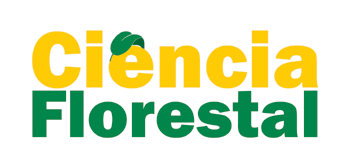ABSTRACT
The ectomycorrhizal fungi symbiosis with native florestal essences may be an alternative to revegetation of metal contaminated soils. The aim of this work was to determine canafístula seedlings behavior, inoculated to ectomycorrhizal fungi in soil with copper excess. The trial was conducted in greenhouse conditions. The ectomycorrhizal fungi used was Pisolithus microcarpus UFSC Pt116, cultivated on peat-vermiculite substrate (3:1). The canafístula seedlings were developed in washed sand and transplanted, when showed two definitive leaves. Vase of 1L with 1 kg of soil were used as experimental unit. The inoculation was accomplished in the seedlings transplant, added 2g of inoculates for experimental unit. The experimental design was entirely casual in bi factorial scheme (2 x 4) qualitative in A, with and without fungi inoculum and quantitative in D being the control addition of 150 mg Kg -1, 300 mg Kg -1 and 450 mg Kg -1 of copper (CuSO4), with seven repetitions. Plant height, colon diameter, dry matter, copper content, mycorrhizal colonization percentage, superficial roots area and roots length were assessed. The increase of soil copper levels reduced roots length, specific superficial roots area, height and plant diameter of canafístula. Canafistula seedlings inoculated to ectomycorrhizal fungi showed low cooper amounts in their tissue and copper absortion reduced in high copper doses.
Keywords:
ectomycorrhizal; heavy metal; contamination soil
